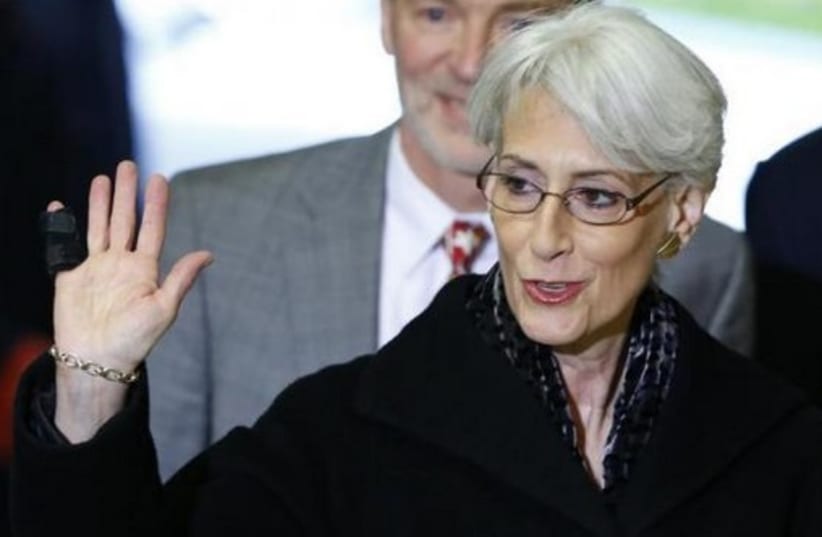The Biden administration is interested in rejoining the 2015 nuclear agreement with Iran, deputy secretary of state nominee Wendy Sherman said on Wednesday but noted that it was impossible to return to the starting gate because the world had changed in the six years since the deal was first signed. Speaking during her confirmation hearing at the Senate Foreign Relations Committee, she said that the Biden-Harris administration wants to get back into the deal, “but to make it longer and stronger” and to use it as a platform to have negotiations on all areas of concern. It should be part of a comprehensive strategy and ensures that Iran will not create a nuclear weapon, Sherman said.
She previously served as the former undersecretary of state under the Obama administration and negotiated the JCPOA.
“We are in a very different place, the geopolitics are different” in 2021 than in 2015, Sherman added.
Among the regional shifts she referenced were the four normalization deals the former Trump administration had brokered between Israel and four Arab states.
These normalization deals with Israel were “a good thing,” and they have “changed the geopolitics of the region, and that means that one has to think of this in a different way because there are different elements on the table,” she said.
Sherman also reconfirmed that the Biden administration would be consulting with Israel and the Gulf States with respect to Iran.
“My understanding of what the Biden-Harris administration hopes to do is to get Iran to come back into full compliance with the deal,” she said. “And then we would be in compliance with the deal, and we would build from that, to get a longer and stronger agreement given that the deal is now some years old.”
Sherman went on to say that Iran has now increased its stockpile, increased the depth of its enrichment, increased many of its capabilities, using more sophisticated centrifuges as a result of the US leaving the agreement. “We would not only get back to where we were, but we would build a better, stronger, longer platform,” she continued.
“And then, we would address the other issues of concern,” Sherman noted. She said that a one-year breakout time is critical, “because it allows us, if for some reason, Iran is able to cheat, though there were the most extraordinary verification and monitoring mechanisms, we would have time to snap back on sanctions or even to take military action. So we would maintain all of our options to ensure that Iran did not obtain a nuclear weapon.”
Sen. Bob Menendez (D-NJ), chairman of the Senate Foreign Relations Committee, said that he recognizes that the maximum pressure campaign costs Iran financially, “but it didn’t meet the goals that I think we collectively want.”
He also asked Sherman if she believed that a nuclear-armed Iran is an existential threat to Israel, and she answered with affirmation.
“I appreciate the phrase ‘stronger and longer,’” Menendez said. “I get what longer means. [As of] stronger, I’m hoping for definition, because the reality is if all we do is return to the JCPOA, that certainly isn’t ‘stronger.’”
“And if we extend it, it might be longer, but it’s not stronger because there are still sunset issues that are now more prevalent today than they were in 2016 when the agreement went into effect,” he continued. “And so it also will not have dealt with the ballistic missiles. It will not have dealt with the destabilization of the region. It will not have dealt with its support for terrorism, or the violation of its own people’s human rights. And so, the question in my mind is not so much JCPOA. The question in my mind is what is ‘JCPOA plus’ or what is it that we do.”
WHILE SHERMAN testified in Congress, Secretary of State Antony Blinken gave his first foreign policy speech since taking office. He singled out the US relationship with China as the main overseas focus of the Biden administration, saying that they posed “the biggest geopolitical test” of this century.
In a speech at the State Department, Blinken sought to set out how foreign policy will bring benefits for American workers and families, which is key to the new administration’s approach.
China was the only nation that Blinken said was one of eight priorities, which also included working to avoid another global pandemic, tackling climate change and promoting democracy abroad.
China is the only country with the power to seriously challenge the US’ ability to shape the global system of “rules, values and relationships,” he said.
“Our relationship with China will be competitive when it should be, collaborative when it can be, and adversarial when it must be,” Blinken affirmed.
